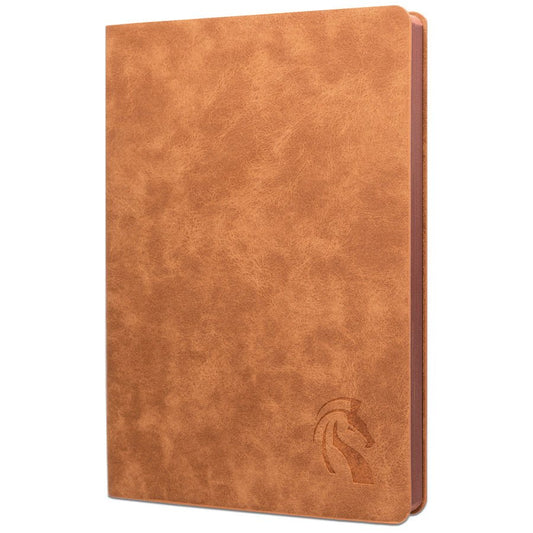
Journaling can be a powerful tool in processing difficult experiences. 50 Trauma Journal Prompts are designed to help you gently navigate your trauma and emotional healing journey.
By putting pen to paper, you can explore your thoughts, make sense of your feelings, and take steps toward rebuilding your sense of peace and resilience.
As you work through these prompts, remember that healing from trauma takes time and patience.
Each prompt is a small step toward understanding, processing, and letting go of the pain that holds you back.
These journal prompts will guide you as you reflect on your experiences, release emotional weight, and move forward with greater clarity and strength.
Trauma Journal Prompts: Understanding Your Trauma
- What is one memory related to your trauma that still feels unresolved? Reflect on why this memory feels heavy and what emotions arise when you think about it.
- What physical sensations do you feel when you think about your trauma? Reflect on how your body reacts and what this tells you about where you hold your emotions.
- How has your trauma shaped your self-perception? Write about how your experiences have affected how you view yourself, both positively and negatively.
- When was the first time you felt truly safe again after your trauma? Reflect on what made that moment feel secure and how it influenced your healing process.
- How has your trauma affected your relationships? Write about how your connections with others have changed as a result of your experiences.
- What is one coping mechanism you developed to manage your trauma? Reflect on whether this coping strategy helps or hinders your healing.
- What triggers remind you of your trauma? Reflect on specific situations, environments, or interactions that bring back difficult memories.
- What does healing from trauma look like for you? Reflect on how you envision your life as you continue to heal and rebuild.
- How does your trauma impact your daily life? Reflect on the ways it affects your thoughts, decisions, and interactions on a regular basis.
- What does safety feel like to you now? Reflect on what environments, people, or practices make you feel safe as you heal from trauma.

By gently exploring your trauma, you begin to understand its roots and impact. This understanding is the foundation of healing, allowing you to take the first step toward emotional recovery.
Trauma Journal Prompts: Processing Emotional Pain
- What is one emotion you’ve struggled to express related to your trauma? Reflect on why this emotion is difficult to face and how you might release it safely.
- How do you manage overwhelming emotions when they arise? Write about the strategies you use to cope with intense feelings and whether they’re helping or hurting your healing.
- What is one emotion you wish you could let go of? Reflect on why this emotion is holding on and how you can start to release its grip.
- When was the last time you felt angry about your trauma? Write about how this anger has impacted your healing and how you’ve expressed it.
- How does sadness show up in your healing journey? Reflect on moments when you felt deep sorrow and how you’ve coped with those feelings.
- What is one emotion you’ve learned to accept as part of your healing process? Reflect on how embracing this emotion has helped you move forward.
- How do you process guilt or shame related to your trauma? Write about how these emotions influence your thoughts and behaviors.
- What helps you feel grounded when you’re overwhelmed by emotions? Reflect on the practices or people who help you find stability during difficult times.
- What is one belief about yourself that you’ve questioned since your trauma? Write about how your experiences have shaped your sense of identity.
- How do you release emotions that feel too big to handle? Reflect on the practices that help you safely express and release difficult feelings.

Emotional pain can feel overwhelming, but by allowing yourself to experience and release those feelings, you create space for healing and renewal. Feel what needs to be felt, then let it flow out like the tide.
Trauma Journal Prompts: Rebuilding Trust in Yourself and Others
- How has your ability to trust yourself changed since experiencing trauma? Reflect on moments when you doubted yourself and how you’re working to rebuild that trust.
- What is one way you’ve learned to trust your instincts again? Write about a recent moment when you listened to your inner voice and how it guided you.
- How do you know when you feel safe with someone else? Reflect on the signs that help you recognize when a relationship or environment feels secure.
- What does trust in others look like for you now? Write about how your experiences have changed your ability to trust friends, family, or partners.
- What boundaries do you need to set to protect your healing? Reflect on how setting boundaries has helped you rebuild trust in yourself.
- Who is someone you trust with your healing journey? Write about how this person has supported you and what qualities make them a safe presence in your life.
- How do you rebuild trust after it’s been broken? Reflect on how you’ve handled broken trust in the past and what you’ve learned about healing relationships.
- How does fear of betrayal affect your relationships? Write about how this fear shows up and how you can manage it while still opening yourself to connection.
- What role does forgiveness play in rebuilding trust? Reflect on how forgiving others or yourself has been part of your healing process.
- What does trusting yourself with your own healing look like? Write about how you can rely on your own strength and intuition to guide you forward.

Trust, once broken, takes time to rebuild. Whether it’s trust in yourself or others, each small step toward opening up again is a testament to your resilience and strength.
Trauma Journal Prompts: Letting Go and Moving Forward
- What is one thing you need to let go of from your trauma? Reflect on how holding on to this has affected your healing and how releasing it could bring you peace.
- How do you recognize when you’re ready to move on from a painful memory? Write about what signs show you that you’re ready to release the past.
- What role does forgiveness play in letting go of your trauma? Reflect on whether forgiving yourself or others could help you find peace.
- What is one step you can take today to start letting go of the past? Write about a small action you can take toward emotional freedom.
- How does your trauma influence your decisions today? Reflect on how releasing past pain could allow you to make choices with greater clarity.
- What does closure look like for you in your healing journey? Reflect on what you need to feel at peace with your past and how you can work toward that closure.
- How can you create new memories that aren’t influenced by your trauma? Write about how you can start building positive experiences in your life moving forward.
- What is one belief you’ve held onto that no longer serves you? Reflect on how this belief is keeping you stuck and how you can let it go.
- How do you plan to move forward while honoring your past? Reflect on how you can balance letting go with acknowledging your experiences.
- What does freedom from trauma look like for you? Write about what it would feel like to no longer be weighed down by your past.

Letting go of trauma is not about forgetting—it’s about freeing yourself from its hold. By releasing what no longer serves you, you create space for new experiences, growth, and healing.
Trauma Journal Prompts: Embracing Healing and Hope
- What does healing from trauma mean to you? Reflect on how you define healing and what it looks like in your day-to-day life.
- What are three things you’re hopeful for as you continue your healing journey? Write about how holding on to hope helps guide your recovery.
- What is one way you’ve already healed that you’re proud of? Reflect on a specific area of growth and how far you’ve come.
- What are you most looking forward to as you heal? Write about how healing can open up new opportunities and experiences for you.
- How do you maintain hope on days when healing feels hard? Reflect on what keeps you going when the journey seems overwhelming.
- What strengths have you discovered in yourself through your healing process? Reflect on how these strengths are helping you move forward.
- What does inner peace look like for you as you heal from trauma? Write about how finding peace within yourself is part of your healing journey.
- How can you continue to nurture your healing each day? Reflect on small daily practices that support your emotional and mental well-being.
- What does it mean to trust the healing process? Write about how patience and self-compassion play a role in your recovery.
- What would you tell your future self about this healing journey? Reflect on what wisdom and encouragement you would offer as you continue to heal.

Healing from trauma takes time, patience, and courage. Trust that every small step you take brings you closer to the peace and freedom you deserve. Hold on to hope as you continue to heal and grow.
These 50 Trauma Journal Prompts offer a compassionate path toward understanding, processing, and healing your trauma.
As you write, remember that healing is a journey, and each word on the page is a step toward reclaiming your peace, trust, and strength. Stay gentle with yourself and trust the process.
Read Other Related Journal Prompts
50 Self Healing Journal Prompts50 Thanksgiving Journal Prompts
50 Visual Journal Prompts
50 Journal Prompts for Recovery













